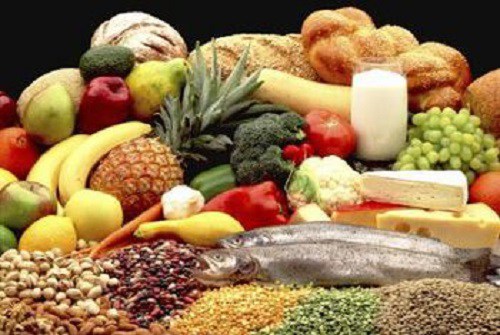NEWS
Turning Breakfast Waste Into Food For Commerce

Breakfast, we’ve long been told, is the most important meal of the day. It sets a precedent for healthy living and fuels the body for the work and play ahead. It’s also playing a key role in pushing businesses to find opportunity in the problem of food waste. It turns out, in fact, that ovular eggs and a square meal may be important players in the circular economy.
That omelet you made this morning? Its eggs were among the 1.3 trillion consumed around the world, an average of 179 eggs per person, each year. And your morning cup of java? It was part of the 12 billion pounds of beans consumed annually.
Think for a moment about how many eggshells and coffee grounds are left behind, the cost of disposing of them, and the greenhouse gases — especially methane — that they will generate as they decompose. Now consider that theWorld Bank projects (pdf) that the amount of solid waste humans produce around the world will rise from 3.5 billion tons per day in 2010 to 6 billion in 2025.
As the demand for landfill space goes up and awareness of the environmental impact of waste rises, businesses will have to pay more to dispose of after-products. In the United States, landfill costs are rising by 2.9 percent annually,according to the market research firm IBISWorld. In Europe, 20 nations have imposed landfill taxes that already cost waste producers more than €2 billion each year and likely will rise further.
So it’s not surprising that companies are finding that it makes economic sense — as well as environmental sense — to turn breakfast waste into useful products.
Last summer, Just Egg, a Leicester, England–based mayonnaise and hard-boiled egg processor that handles as many as 1.5 million eggs each week, started turning used eggshells into chalk powder, which can to be used as a filler to strengthen plastics. Founder Pankaj Pancholi added the powder-producing extension to his existing plant, and partnered with Leicester University scientists who are looking to extend the idea to other companies; Just Egg will earn back the £300,000 cost of the new equipment through saved landfill costs, which run £45,000 to £50,000 a year, and from the plastics companies it expects to buy the powder.
Though the numbers make sense, Pancholi says his motivation for building the plant extension was not primarily financial. “I don’t want to throw a good product on a landfill site,” he told me, adding that getting calcium carbonite from his eggshells also means that less will be needed from chalk mines. “How much will people keep digging?”
Pancholi isn’t alone in seeking more uses for egg waste. In the United States, scientists at Wayne State University have hatched a process for turning eggshells into battery electrodes. Because electrodes use both the shell and the stinky membrane, scientists can skip the tricky step of separating them.
Scientists at Wayne State University have hatched a process for turning eggshells into battery electrodes.
Responding to a National Science Foundation contest to find new uses for waste, Tuskegee University materials scientists found ways to makebiodegradable packaging from eggshells blasted into nanoparticles and mixed with biodegradable polymers. They’re also exploring using these new bioplastics to create dental fillings, regenerate bone, help heal wounds, and deliver drugs.
On a per-serving basis, coffee generates far more waste product than eggs. Every day, millions of us lift soggy filters laden with wet grounds and toss them into the garbage. But with coffee waste, there may also be grounds for optimism.
Starbucks offers free bags of coffee grounds to use as compost in gardens. That’s a good start. But the London-based startup Bio-Bean has found even more value in coffee waste. Each year, itcollects more than 10 million pounds of grounds and recycles it into biodiesel and biomass pellets. The pellets cost less than oil and natural gas, making them cost-effective not only for coffee shops but for furnace owners.
Nuclear plants are experimenting with using coffee grounds along with spent whisky grains to soak up nuclear wastebecause of the way they bond with metallic particles and absorb radioactive isotopes. Doing so not only makes it safe to pack and store the neutralized waste, but it is faster and cheaper than traditional cleanup and storage methodsy
































